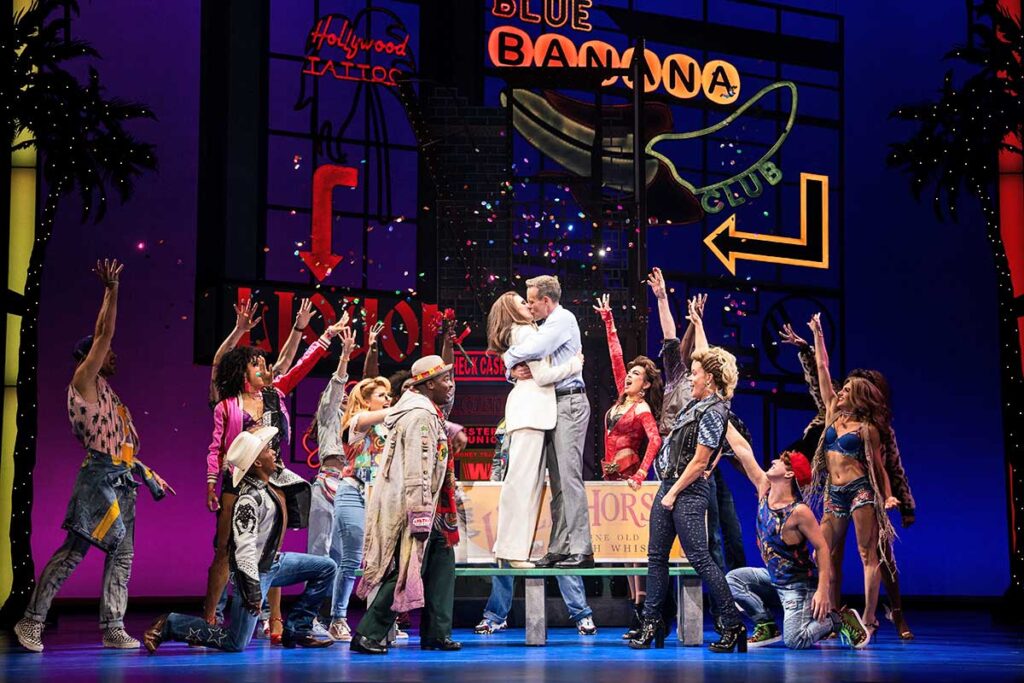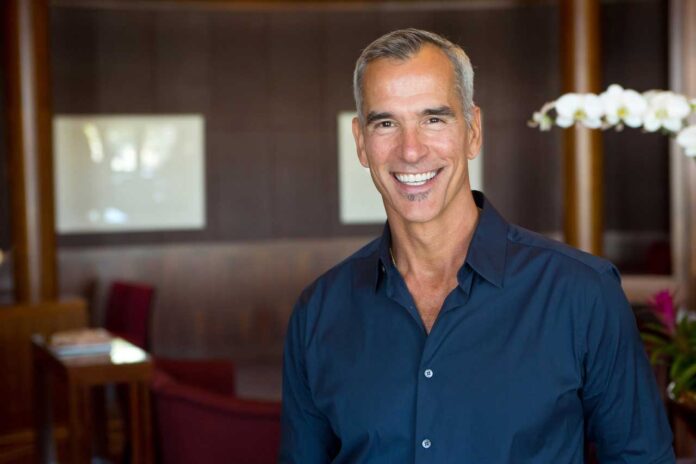Jerry Mitchell has had his hand in some of the most important musicals of the past 20 years. The out director and choreographer won Tony Awards for “Kinky Boots” and “La Cage aux Folles,” helmed the wildly popular stage adaptation of “Legally Blonde” and choreographed the legendary original production of “Hairspray” on Broadway, working alongside queer legends John Waters and Harvey Fierstein.
The prolific artist, who began his career as a dancer and chorister, is currently behind the touring musical adaptation of “Pretty Woman,” which plays a two-week engagement at the Academy of Music beginning Jan. 4. PGN recently spoke with Mitchell about translating material from screen to stage, touring in the time of COVID and the importance of representation in the entertainment industry. Some responses have been condensed and edited for clarity.

(Photo Credit: Matthew Murphy for MurphyMade).
“Pretty Woman” is one of the most beloved romantic comedies of all time. What did you take into consideration when adapting such an iconic movie?
First, let me say that no one loves that film more than I do. I saw it when it first came out 30 years ago, and the minute I saw it, I thought it would make a perfect musical. The reason I thought it would make a perfect musical is because the Vivian story is basically a Cinderella story: she’s in the ashes, and she gets her prince in the end. That’s the simple answer. The more complicated answer is that it was a chance to show a woman who makes strong choices for herself and gets herself out of her own trouble. She turns Edward down in the end for the money, and she finds her own self-worth as part of the journey of the week she spends with him. She realizes what her worth is, so she ends up rescuing herself — she wakes him up too. Now, the more a property is known by the public, the more careful you need to be in what you choose to keep and what you choose to reinvent for the stage. Nothing on film works automatically on the stage. Most close-ups in film become emotional songs or emotional moments that are expressed through song. A camera can look into the eyes in a close-up, and you can get a feeling for what’s going on for that character. That needs to be expressed to the back row in the theater — in song, in dance or in dialogue.
I’m glad you brought that up specifically, because even when you’re dealing with something as well known as this source material, you’re not simply putting a carbon copy of it onstage. Have you found the audience to be receptive to the new directions you’ve taken the story in?
It’s a challenge with any show that has such iconic performances. I had the same consideration with “Legally Blonde,” because Reese Witherspoon’s performance as Elle Woods was so iconic. With Laura Bell [Bundy, who originated Elle Woods on Broadway], we had to find her own version of telling that story. The material and the writing is always important in helping the actor tell that story. When [composer] Bryan Adams writes a song like “You and I” that encapsulates the entire opera experience, you go with it. The red dress is there, the necklace is there, the opera is there — but what is really happening onstage is that you’re seeing them fall in love, and you’re seeing her fall in love with something that he loves. That’s the experience you want to give the audience, and they go with that, absolutely.
What has been the experience of executing a tour during COVID? I’m sure there are many more factors in play now than ever before in terms of safety protocols.
There really was nothing we had to do for safety purposes onstage, because we are doing all of that work offstage before the actors walk onstage. The actors get tested three times a week. They come into the building, and they’re pretty isolated from everyone else. They’re wearing masks constantly in their backstage choreography and preparation. Once they step onstage, they remove the mask to perform; when they’re back offstage, they put the mask back on and continue with their backstage show. We have a COVID officer who travels with the show and is in charge of keeping them all safe. It’s been a challenge for every show, and some shows have had to take the responsible action of shutting down after detecting positive cases and reopening after the requisite quarantine. Luckily, no one has gotten really sick or ill. I have four productions going right now — two in London and two out on tour in America — and the industry across the board is dealing with how we get back to our jobs while maintaining a safe and healthy atmosphere. I think the COVID officers who are working on each show are a big help to all of that.
Some of the shows you’ve worked on, like “Kinky Boots” and “La Cage aux Folles,” are outright celebrations of the LGBTQ+ community. Others, like “Hairspray,” highlight the values of diversity and open mindedness. Broadway has always been known as a welcoming place for queer people. Why do you think it’s still important to tell these kinds of stories onstage?
I’ve worked in the theater business for 40 years, and the gay community has always been the most accepted. In that time, it’s become more outwardly accepted by the general population. But we’re still dealing with race issues, and we’re still dealing with trans issues, which are just beginning to surface in the general population. Inclusion and representation always matter. If you can’t see it, you don’t believe it exists. It’s important for us to represent everyone and every aspect of our lives. That work continues for me, and I believe that inclusion is always there, whether it’s obvious or whether it’s subtle. My job mainly is to entertain people. I’m a director and a choreographer — and I’m creating commercial art for the purpose of entertainment. But what I love most is when in that entertainment, I can include something that makes people feel differently, that makes them learn, that makes them happy. Something that makes them walk out of the theater with hope. Those are the stories I get excited about telling.
“Pretty Woman: The Musical” plays its Philadelphia engagement Jan. 4-16 at the Kimmel Cultural Campus’ Academy of Music. For tickets and information, visit kimmelculturalcampus.org. At this time, masks and proof of full vaccination are required for all audience members aged 12 years or older.

